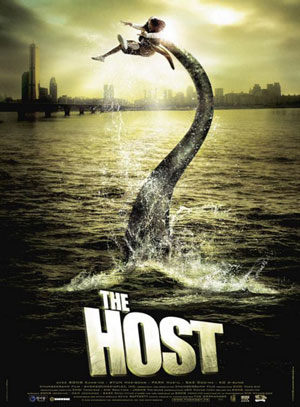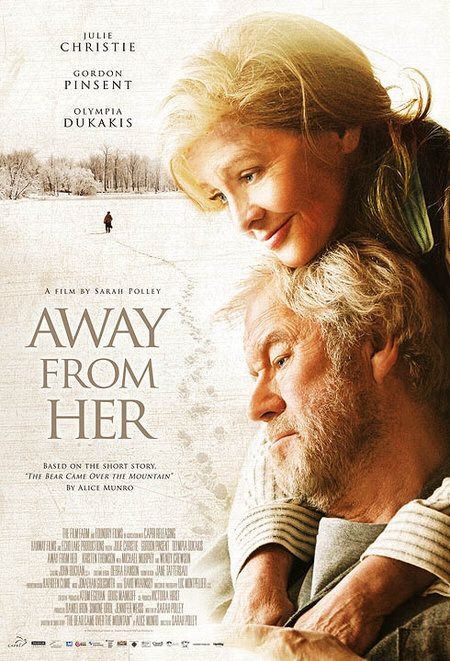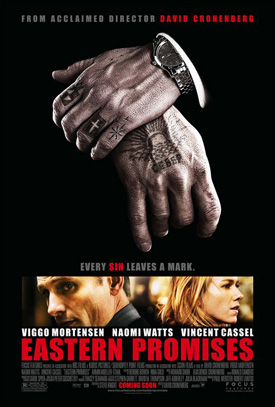
“I don't need to go to a campus bar to be reminded of my lack of success with a bunch of thrill seeking snotty college kids.”
-- Max from Kicking and Screaming (1995)
“Stay out of my life. I can't believe you'd talk to me like this. You left all those fucking ticket stubs and letters lying around! You wanted me to know. It was fucking torture, Joan! FUCKING TORTURE!”
-- Bernard Berkman from The Squid And The Whale
“Stop picking on me.”
-- Margot Zeller from Margot At The Wedding
Marcia Gay Harden’s Mrs. Carmody has nothing on Nicole Kidman’s Margot Zeller this holiday season at the multiplex. Mrs. Carmody is the religious zealot in Frank Darabont’s disturbingly brilliant film, The Mist-- she is just as frightening as the monsters outside the Food Market. Margot Zeller in Noah Baumbach’s stunning new film, Margot At The Wedding, leaves an emotional path of destruction wherever she goes. Mrs. Carmody and those monsters seem like amateurs in comparison. Margot Zeller is the richest performance in Nicole Kidman’s hit and miss career. The role should put to rest any fears that Nicole Kidman is box office poison. She thrives as Margot Zeller-- a one woman firestorm of calculating venom and paranoia with a savage tongue which spares no one in its path. Recently, Ms. Kidman has made some poor choices. Bewitched, The Stepford Wives and The Invasion must have looked great on paper, but the execution was sloppy. She had a trio of good roles with Moulin Rouge!, The Others and The Hours. Fur, Dogville and even The Human Stain seemed lacking in true emotional impact. Cold Mountain was all hype and no glory. In retrospect, Birth seemed liked a cinematic mirror to her marriage to Tom Cruise. Margot At The Wedding may be her best part since To Die For and the most fun she has had since Eyes Wide Shut.
Margot At The Wedding is a far darker film than Noah Baumbach’s previous film, The Squid And The Whale. Margot Zeller is certainly cut from the same cloth as Jeff Daniels’ Bernard Berkman, but I have a strong feeling that Margot could do away with Berkman in a matter of seconds. Margot, accompanied by her son, Claude (Zane Pais) goes on a surprise journey to her sister’s wedding. She is not expected, not welcomed. Margot and her sister, Pauline (Jennifer Jason Leigh) have not spoken in a long time. As soon as they reunite with each other, we can see why. Margot is a furious hurricane. She starts with everyone and everything. Nothing is sacred to her. As soon as she meets Pauline’s fiancé, Malcolm (Jack Black), she begins to plant the seeds of doubt about Pauline’s second marriage. The first marriage may have been destroyed by Margot. She is a successful short story writer who wrote about Pauline and her first husband. Malcolm gives her plenty of fuel. He is unemployed artist. Margot believes that Malcolm is beneath Pauline in every way. Going so far as to say he is the kind of guy they used to reject when they were younger.
As Pauline, Jennifer Jason Leigh displays a laidback and carefree attitude that is the antithesis of her sister. The sibling bond is very believable. The body language between Leigh and Kidman is perfect-- several glances and movements say more about estrangement than any dialogue. Pauline is one of the best roles that Jennifer Jason Leigh has had in many years. Her spouse, Noah Baumbach, has written one of her best roles since her howitzer precision of dynamic characters of the 1990’s. She was good in supporting parts in The Machinist and Palindromes. She proved her directing skills with Alan Cumming in The Anniversary Party. Pauline stems from some of her best work in Short Cuts, Last Exit to Brooklyn, Mrs. Parker and The Vicious Circle, The Hudsucker Proxy, Existenz, Georgia and Single White Female. She has been a fireball of hot and cold action since Fast Times At Ridgemont High. Pauline encapsulates a diverse career of choices. Before Margot At The Wedding, I was beginning to wonder if she would make the equivalent of glorified cameos in the films of Todd Solondz and Brad Anderson. Thankfully, Pauline is a mature return to leading lady perfection.
Jack Black’s Malcolm is the halfway point between the characters he played in High Fidelity and School Of Rock. Malcolm is the perfect mix of comedy and tragedy. Malcolm seeks refuge within Pauline’s comfortable existence. He is a happy slacker in her home which is the childhood home of Pauline and Margot. We have seen variations of this character before played by Jack Black, but Baumbach manages to get the audience to sympathize with Malcolm throughout most of the film. He, like everyone else, becomes a target for Margot. Speaking of targets, newcomer Zane Pais, shines as Margot’s son. From the film’s opening moments on the train ride to Pauline’s house, we see the toll it takes being her son. He steps outside between the train cars and screams.
The myth of adulthood, not to be confused with Alfred Rosenberg’s The Myth Of the Twentieth Century, is at the heart of the Noah Baumbach’s films. Kicking and Screaming was the epitome of twenty something stagnation-- how I miss Chris Eigemen. None of the characters were ready to move on with their post college lives. This same theme is prevalent in the films of Wes Anderson and Judd Apatow. Adulthood is the Holy Grail-- the children are not sure what it is and the adults act like selfish, little children. It is no accident that Noah Baumbach wrote The Life Aquatic With Steve Zissou with Wes Anderson. Anderson and Baumbach share a fascination with the subject matter. Yet, Baumbach’s characters in The Squid And The Whale and Margot At The Wedding are malevolent versions of Anderson’s childlike adults. While Royal Tenebaum, Steve Zissou and Patricia Whitman have followed their own bliss or just escaped any sort of parental or grown up responsibility, they are not the mean spirited characters who have sprung up from the last two Noah Baumbach films. Bernard Berkman would not win the father of year award in The Squid And The Whale. He seems to relish in his new found separation from his wife. To be fair, Laura Linney’s Joan takes advantage of her newfound liberation. Baumbach is a master of the dysfunctional family genre-- drawing on his personal life to create a very memorable and painful chronicle of divorce. Along with Knocked Up and The Darjeeling Limited, Margot At Wedding takes the genre down a darker and more sardonic path.
The beauty of Margot’s character is that Baumbach manages to convey an empathetic desperation. Margot has problems of her own. Her marriage to her husband, Jim (John Turturro) has reached the end of the line. She is having an affair with a fellow writer, Dick (Ciarin Hinds) who lives near Pauline. Did she only attend the wedding to spend time with Dick? In her own frenetic way, she still wants to shape Claude and protect him from the world. She treats him like a child, but he finds ways to revolt. Here is the kicker; she is so paranoid she thinks everyone is out to get her. In Margot, Noah Baumbach has created the epitome of a selfish and vindictive woman whose narcissism and toxic personality can destroy an entire family. Margot Keller is the ultimate monster of 2007. I will take my chances against the monsters in The Mist.






















